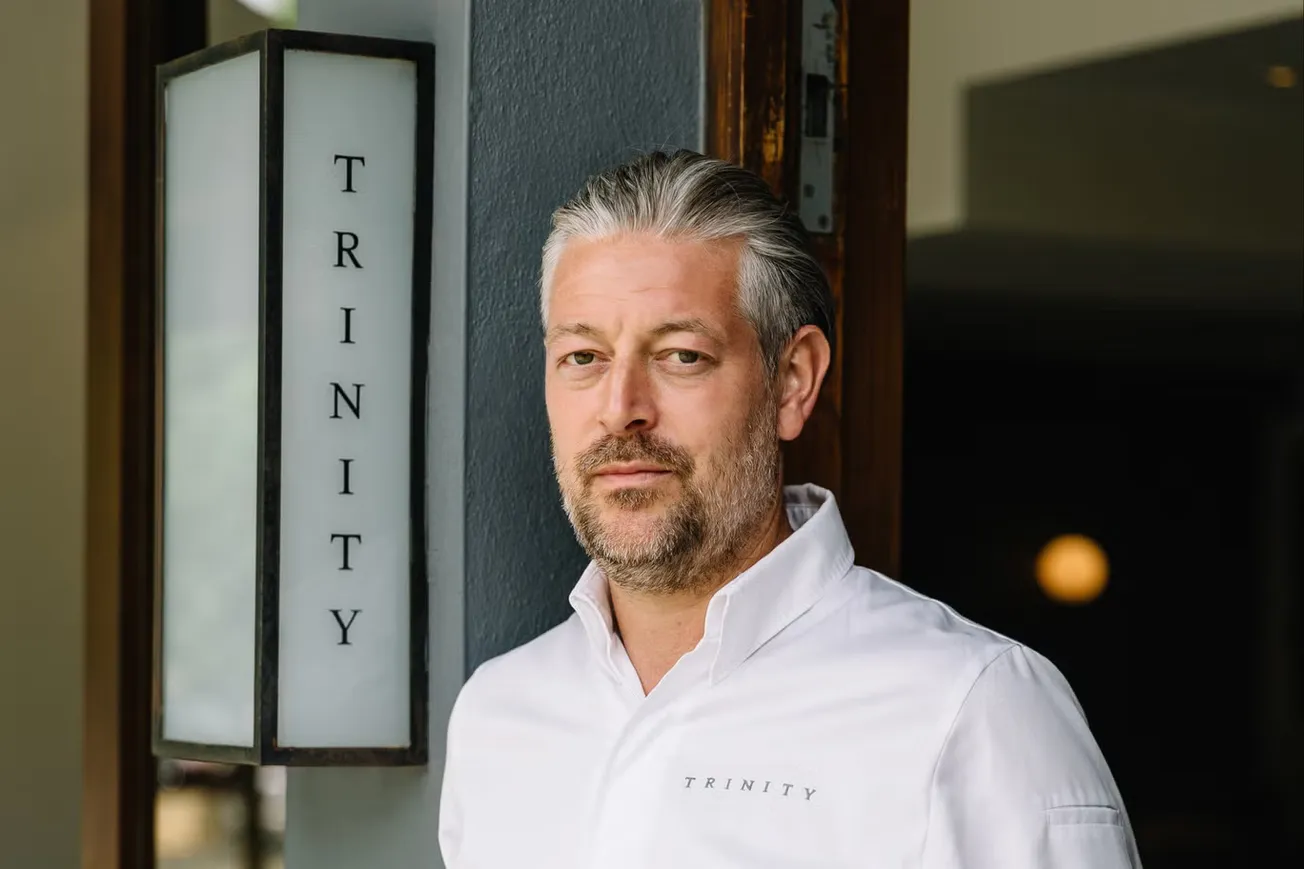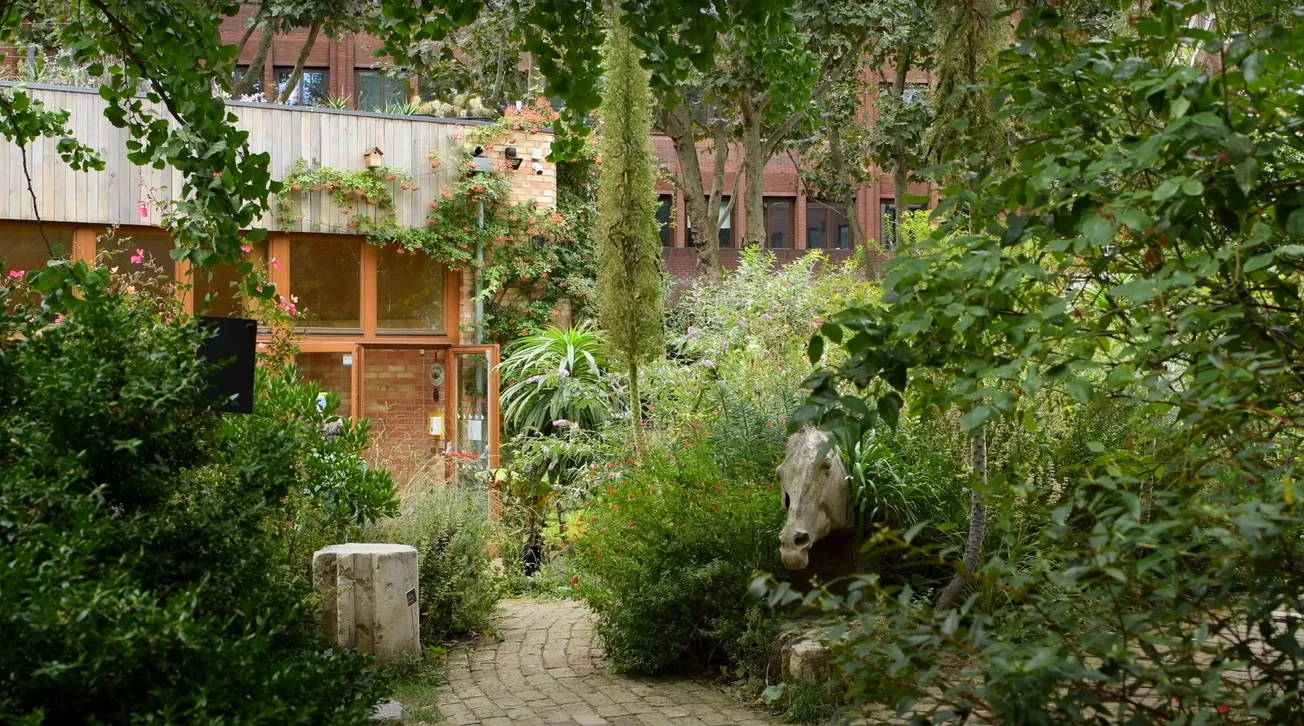Having almost exhausted his crumpled packet of Marlboro Golds, Jan Khushi Mohammed is standing behind the bar at Venue MOT, idly regarding his tabletop slushy machine, when the door swings open. It’s Keanu Burrell, a marketing manager for Red Bull. Something’s wrong. Burrell points towards a fridge.
“Oh come on man!” he says, with the resigned annoyance of an exhausted parent. “You’re killing me! What is this?!”
The fridge in question — which the higher-ups at Red Bull signed off as a gift for branding visibility — has been crudely covered with gaffer tape and filled with beer.
“Oh no,” Mohammed — a lanky man, with grey Mod-style sideburns — replies sheepishly. “That was a joke to wind you up.”
“Come on!” Burrell reiterates, “if my boss saw this he’d have me by the neck!” Then they both start laughing; Burrell less sincerely than Mohammed. He begins wearily peeling off the tape, careful not to come off too exasperated. Venue MOT, with its 250-person capacity, might be almost negligible in terms of unit sales, but, as of two months ago, Mohammed’s compact ex-garage in Bermondsey is officially Time Out’s ‘best club in London’. For better or worse, that still means something.
How Jan Mohammed came to preside over the ‘best' club in London is a story that sets him apart, even in the distinctive cul-de-sac of nightlife proprietors. His venue is a physical embodiment of his background; spanning two units on an industrial park, Venue MOT carries the spirit of London’s unlicensed netherworld, whilst just about remaining within the bounds of legal permissibility. The corrugated metal face of the smoking area is fretted with holes from sporadic throwing knives and air rifle target practice sessions held by the staff. Jamie xx called it “one of the last places in London that feels genuinely free and DIY” after a 10-night residency.
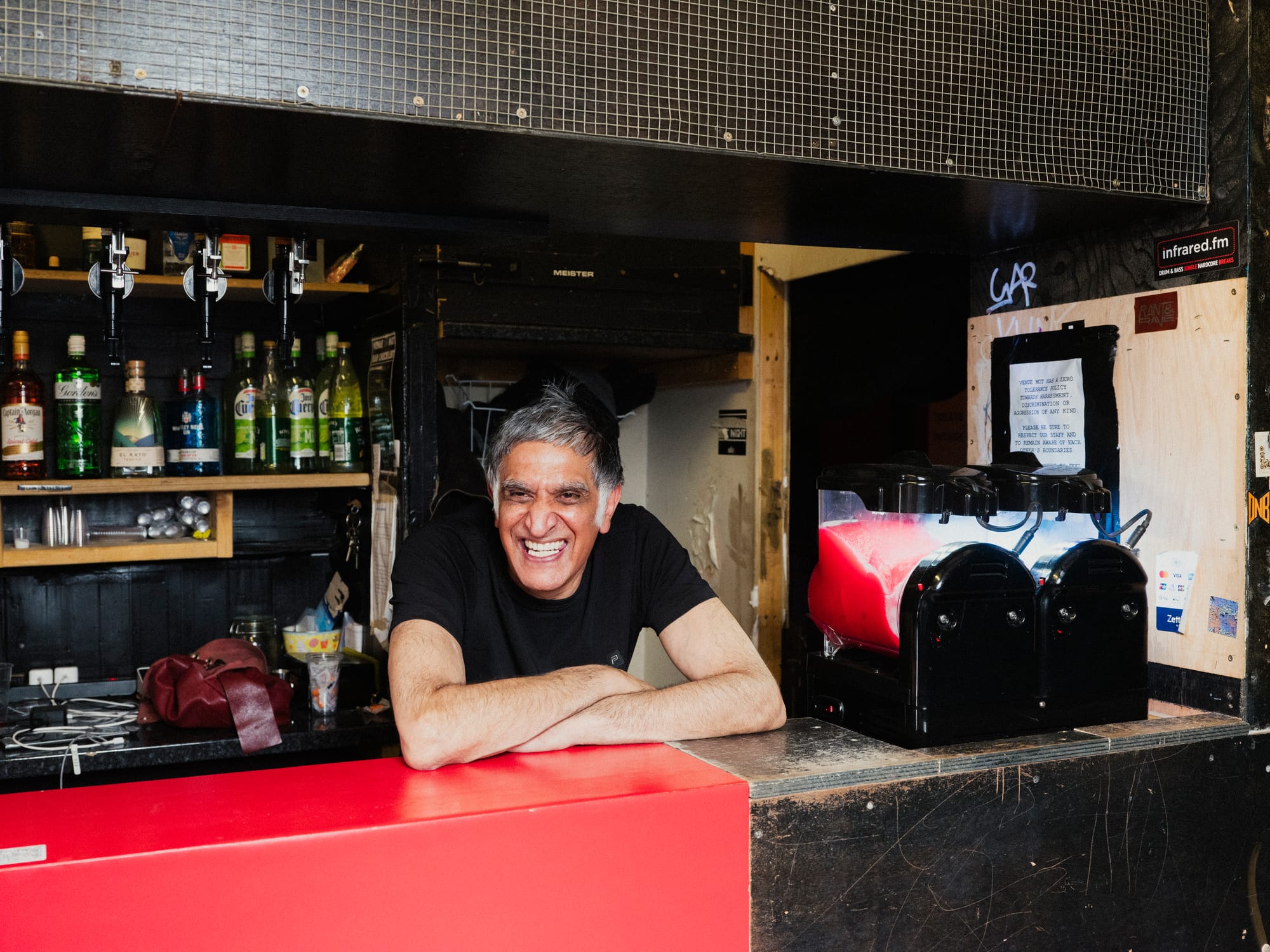
MOT’s palpitating heart is Mohammed, one of those definition-defying figures polite society has agreed to call “a bit of a character”. His CV lists multiple vocations including gnome painting, mushroom farming, gallery design and chauffeuring for the Freemasons. He maintains a symbiotic relationship with his 55kg pitbull, Sox, who Mohammed occasionally enlists to help him chase away homophobes and racists.
Getting a coherent story out of Mohammed isn’t easy. To help prepare for the interview, a friend of his advises me that Mohammed speaks “holographically” and to relax into the flow of his “weird poetry”. “He’s a nutter,” the friend says of the 54-year old. "But with a heart the size of Leeds”.
Jan Mohammed isn’t actually from Leeds. He grew up eleven miles down the M1 in Wakefield, a cathedral city largely associated with coal and royalism during the civil war. Mohammed was born to a nine sibling-strong Kashmiri immigrant family. His father, a WWII veteran, spent two years in a Burmese prison camp. Mohammed only worked out what all the “tight patches” on his skin were later in life.
Both his parents were highly industrious, and, upon moving to the UK, had the foresight to start one of the first halal butchers in the north of England, supplying cities as far as Glasgow. “By the 1980s, it was turning over roughly £1500 per day”, Mohammed recounts proudly over fags and bright blue tequila slushies. Almost all the money was re-invested into property; at one point, his family owned 43 of the 86 houses on their street. Often, they would eat in one, then sleep in another.
Mohammed’s childhood was chaotic, interrupted by extended periods of exclusion from school. His main focus was hustling; despite not wanting for money, he loved a quick buck. Somehow, he became Wakefield’s go-to underage courier of illicit goods; the local MP’s wife commissioned him to place bets at the bookies, policemen sent him down to the video-store to discreetly retrieve porn. The adult world beckoned and Mohammed followed gleefully.
“The thing about me was”, Mohammed says, with a playful growl, “I was a sly little bastard and I always get what I want.” Aged five, he coveted another child’s toy; instead of stealing it, he simply swapped everyone’s toys around. “Nobody got robbed, nobody got blamed.” On play dates at the local policeman’s house, he’d sweep the place for coins, just because he could. He bribed schoolmates to play for his team in the inter-house rugby cup so they could win (they didn’t) and paid someone to do his homework.
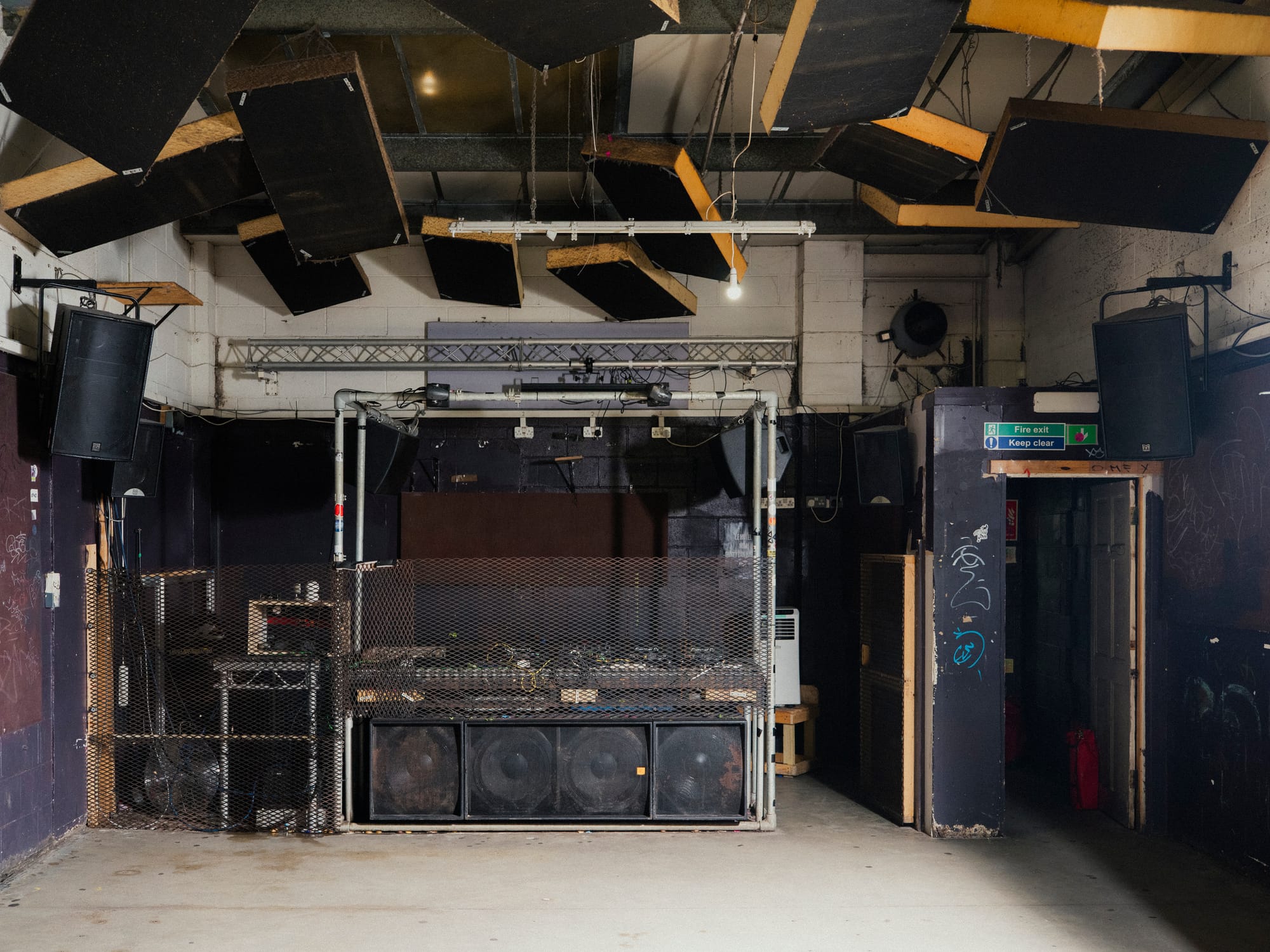
Fleeing strict parental discipline at 17, Mohommed rode a motorbike to Glastonbury and never came back. He became further entranced by the underbelly of society, which neatly coincided with a newfound love of partying. His “baptism” — as he calls it — occurred in a dingy, basement club off Manchester’s Piccadilly Circus. Mohammed still rhapsodises about that formative night. “The kindness in that room, the warmth, the acceptance. The vibe was just good!”
From then on, Mohammed began to associate with people who partied, then people who took drugs at parties, then people who sold drugs, then people who owned the people who sold the drugs. In the early 1990s he seized an opportunity to make some money by facilitating the purchase of a kilo of heroin for an infamous set of Scouse gangsters. When the drugs fell through, and men with guns started showing up outside his family home, he left for Pakistan to facilitate the deal himself, eventually arriving at an empty Mujahideen training camp on the Afghan border.
The locals called the area “wild land”; there was no structured government there, so you could buy almost anything. The sky was darkening as a long, thin man emerged from one of the shelters bearing an oil lamp and a pair of AK-47s. The guns were for hospitality's sake and they unloaded a clip together into the hillside. “I was so shit with it, it was unbelievable,” Mohammed remembers. It didn’t matter; the drugs were already secure.
It’s worth mentioning that this saga hangs on the testimony of one man. I’ve been unable to speak to anyone else who accompanied Mohammed on his trip across the world and have no former Mujahideen contacts to back his story up. Small details appear to be true at least. “There was a flood,” he recalls of his time in Pakistan, “this would’ve been September, ‘92. UN peacekeepers were all over the place, everyone’s stuff had washed away.” This was something I could fact check, and, to my surprise, there it was: the 1992 India–Pakistan floods, 7 September, 2496 deaths.
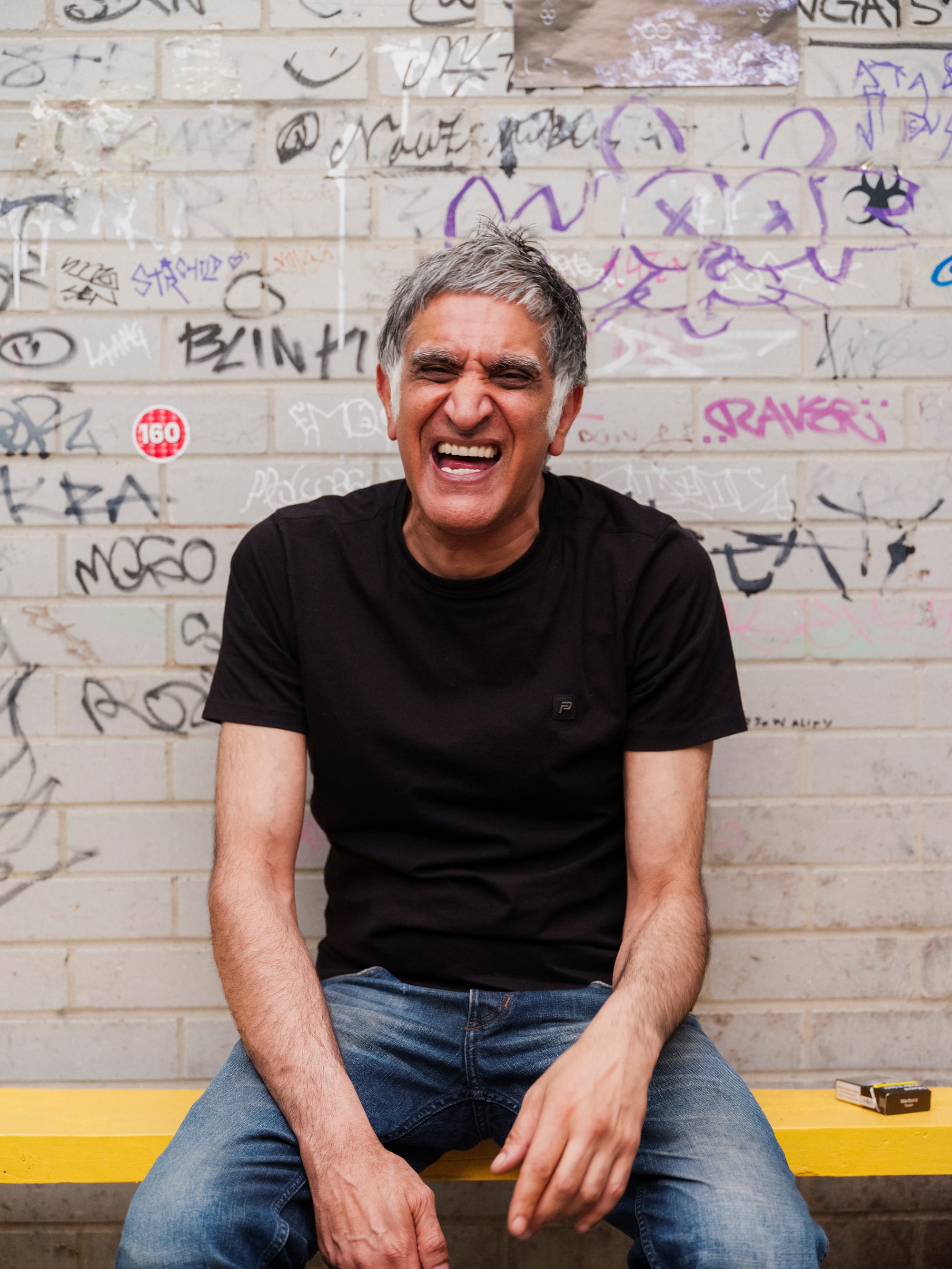
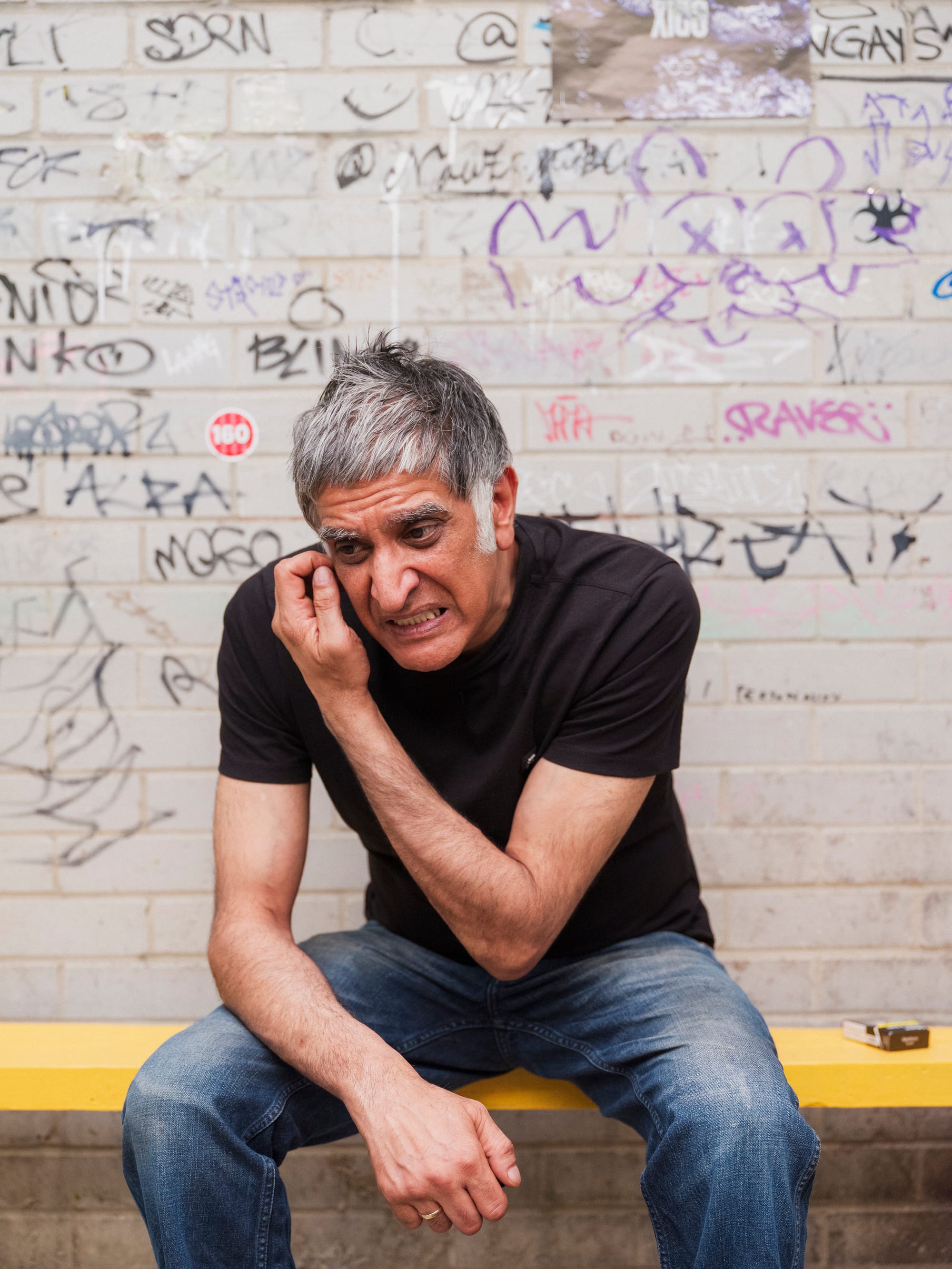
Jan Mohammed in the smoking area of Venue MOT. Photo: Harry Mitchell
When Mohammed got back to the UK, he thought his odyssey was over. It wasn’t.
Pulling away from Heathrow on a bus, he realised he was being followed. Calmly, he wadded any incriminating phone numbers into a ball and swallowed them. Then, with a kilo of high quality heroin sealed inside the plastic casing of a suitcase, he began jumping buses, as unpredictably as possible, ferrying himself back up north. By the time he neared Wakefield, his confidence grew; “this was home turf”.
On the final stretch, out of the rear window, he noticed a line of cars beginning to form up on the motorway. Then the 110 to Kettlethorpe stopped and a customs official boarded with a look of cold determination in his beady eyes.
Sorry to interrupt. We hope you're enjoying this article. We just wanted to let you know that you can get two totally free editions of The Londoner in your inbox, every week. That's the Monday briefing — full of news, scoops and recommendations — and the weekend read, which you're perusing right now. Just click the button below to sign up. Again, it's completely free.
Instinctively Mohammed bolted out an emergency exit, into a graveyard and began weaving between tombstones, flying through holes in fences, the proportions of which he’d memorised from childhood. He was trying to reach a canal where he could jettison his illicit cargo.
“I was so close,” he says, grinning, “but they slammed me up”.
They grabbed him next to Wakefield Trinity, outside St Catherine’s Church. “I’ve got you, you black bastard!” the policeman shouted, triumphantly. Mohammed was sentenced in 1993 to eight years at Garth, a men's prison in Lancashire.
Garth is where Mohammed honed his ability to throw a party. The prison was a Category B, with a focus on re-skilling prisoners for later life. In the institution's music department, he met Rio, “a yardie from Manchester” who shared his love of loud basslines. The two set about fashioning speaker cabinets out of disassembled wardrobes.
Utilising his many contacts, he was able to source sound-systems, 350-watt woofers, tapes of electronica and handfuls of pills for jail raves. “You did what you fucking liked in those days before the drug tests started in 1995,” he claims. “I used to set the loudest system up”.
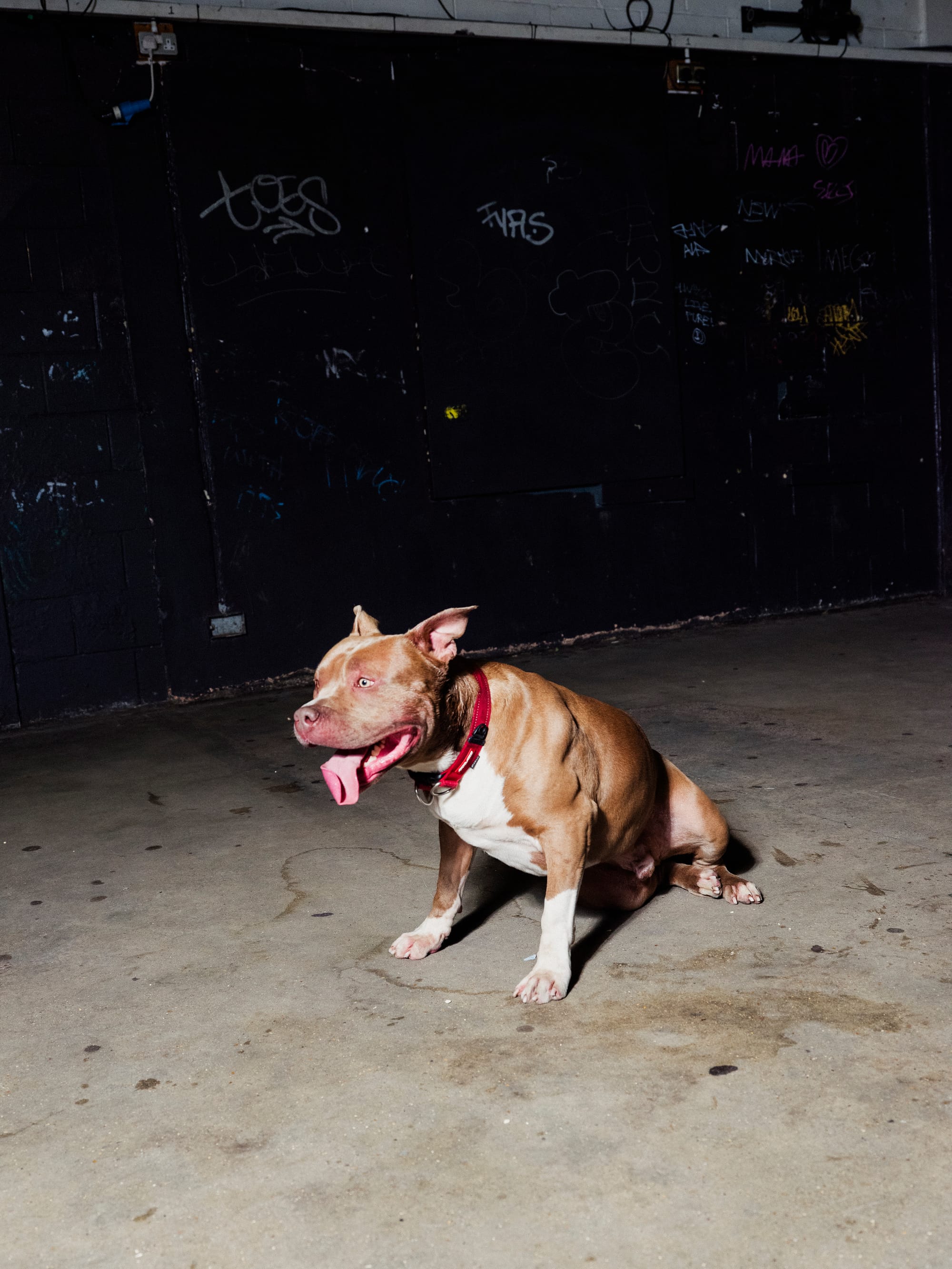
Decked out in red Nike shorts, Mohammed and Rio would rig cells with his homemade systems, prisoners floating in and out. “I’d dance all night,” Mohammed recalls. (Like the saga that led to his incarceration, Mohammed’s prison parties were also difficult to fact check, though Garth has a reputation for being “cushy” and filled with drugs.)
Outside Garth, the ‘free love’ promise of rave was going mainstream, curdling in the process. “Madchester” was becoming “Gunchester”, “Nottingham” beginning to morph into “Shottingham”. Inside, Mohammed’s sentence was suspended to five years and he emerged from incarceration in 1997, immediately pursuing an art degree at Loughborough.
He became popular at university, the guy who always knew another guy “who can get you some for a lot cheaper”. Thanks to his prison parties and “rock-solid nature not to grass”, he maintained his contacts in the criminal world but rarely used them for more than facilitating chemically-aided nights out.
And Mohammed quickly made up for lost time in the dance. “I used to start on a Thursday, come home on the Sunday, I had the energy.” The 1990s were tipping into a new millennium and, despite being a regular at illegal raves, Mohammed was released back into a changing world. In the wake of state crackdowns, partying was increasingly moving into the monetisable dimensions of the club. A certain set of entrepreneurial ravers smelled opportunity, although it would be over a decade before Mohammed joined their ranks.
On a freezing October afternoon in 2016, Mohammed, accompanied by friends Jim Janco and Mike Levit, stood in a vast, derelict South London warehouse. Back then, the area of South Bermondsey surrounding the Millwall F.C's stadium was still a hinterland. Bright young things, largely avoided the ugly new-build flats, the builders' yards left over from the borough’s docking history. But Mohammed, who had a knack of facilitating fun in odd places, thought South Bermondsey could be more — that it could be redefined by music. He’d start by throwing a party in the warehouse space he rented: Excelsior Works.
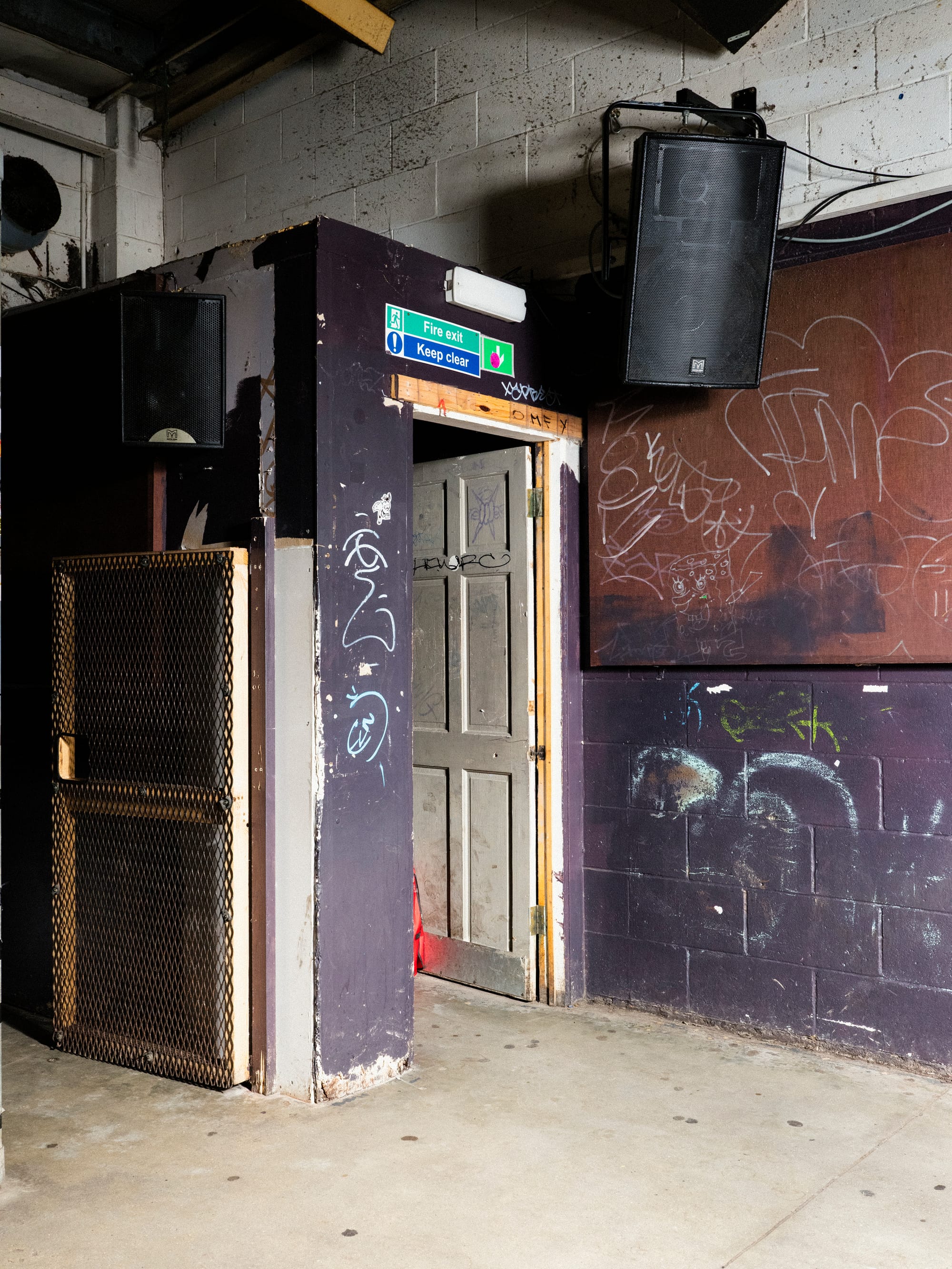
Mohammed had swapped Leeds for London in 2011. Behind him was a gamut of odd jobs, including construction — he says he can build a house if asked, just not the roof or the electronics — and guerrilla marketing campaigns for brands like Nike. In Leeds, he’d become a father, an event which precipitated a focus away from art and back to his first love: making money, although this time it was to support a family. Then a bereavement shook him into “doing things he loved”. He moved to the capital with his wife. His son stayed up north with his mother.
Arriving in London, Mohammed — now in his early forties — started earning a living refitting galleries and quickly plugged into the slipstream of its nightlife, a tight-knit world where everyone knows one another. At a party in Shoreditch, he met the man who would help shape his next two decades. Nacho was a fellow maverick of the same age. His real name was Ignacio; he was Spanish. Nacho was an intrepid London party organiser, well known to the city’s young and mobile thanks to his side-job selling tooth-grindingly pure cocaine out of a caravan in Deptford. “Nacho never had any hangups about himself, he was genuine by nature," says Mohammed. "He was the only person in my life who I felt that energy off”.
One night in 2014, Mohammed was attending World Unknown, an infamous London party then held at a Loughborough Junction church. Descending into the crypt, Mohammed found the rave’s organiser, Andy Blake, and engaged him in conversation. It was one of those 3am chats that spirals in and out of practicality, but Mohammed emerged from the church’s bowels with a vision for his own night, perhaps even his own venue. He had little experience in this field, at least not outside of prison. But as he says: he finds a way to get what he wants.
The first few nights at Excelsior Works were a disaster. The church down the road complained, telling Mohammed they could see people fornicating outside. “Is that true?” he recalls replying, “all I get is cats and dogs round here.” The police gave them an abatement order, a formal notice to pause a public nuisance.
Nothing drives Mohammed quite like being told he can’t do something. Excelsior Works was no longer feasible. He had to find another space. He still thought the 'Bermondsey Triangle' as it’s now known, was perfect: industrial, cheap, and only a twenty minute cycle ride from central London. “It seemed to fit that rawness,” Mohammed says, “there’s something really attractive about it.” By this point, Mohammed had a good amount of disposable income from his guerilla marketing work, which he’d reinvested into Excelsior Works, buying up the leases of spaces and renting them out to artists. After some scouting he found the Orion Business Centre, a collection of industrial units where Venue MOT now resides. But they were all occupied.
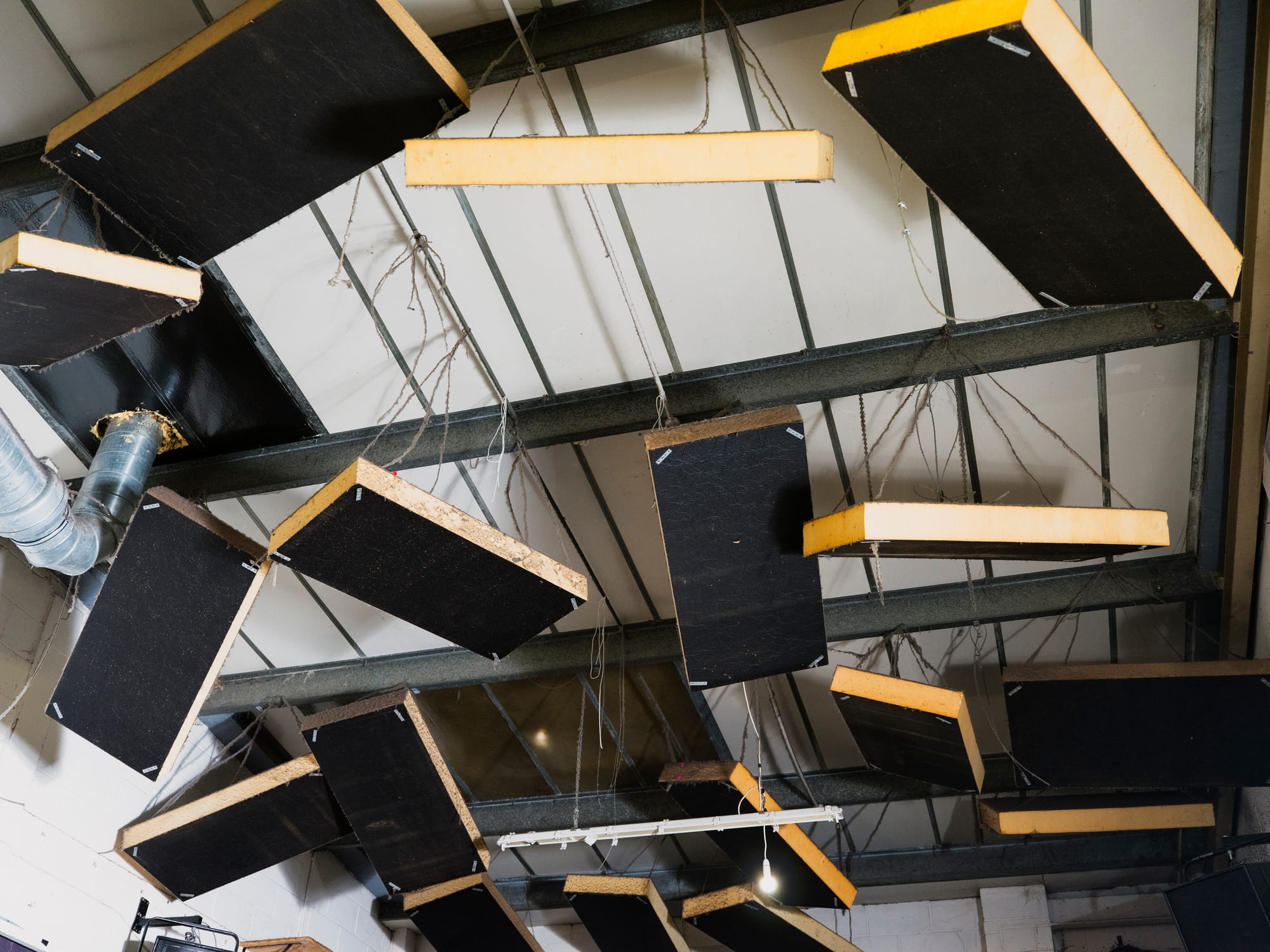
The Roman philosopher, Seneca, tells us that luck resides in the intersection between "opportunity and preparation.” Mohammed had done plenty of preparation. He’d already pitched the idea for Venue MOT to a Lewisham Council committee meeting. The local authority and police, amazingly, had agreed with the concept; the proposed location was the perfect distance away from the road.
But opportunity came in the form of an enormous cannabis growing operation, housed in one of the Orion Business Centre units. When an armed gang attempted to rob the crops in December 2017, the gardener called his team. Then a firearms squad turned up and a protracted Mexican standoff resulted in a vacancy. It was too close to the road for Mohammed’s ambitions, so he convinced the occupant of unit 18 to move a few doors down and took his place.
Borrowing some money from the family, Mohammed bought the lease to Venue MOT in March 2018, and held the first night the following month. The booth was christened by South London techno group, Gdance, who were doing a favour for Andy Blake. Strip lights remained embedded in the walls, and the sound insulation was non-existent. The bar was still under construction. Nonetheless, about 150 people turned up. It felt busy. Nacho pitched in the following evening with his night ‘Electric Sweat’ and even more people came. A few months later, Venue MOT was hosting DJ Assault, who came swaggering in from Detroit. Not long after that, clubland A-listers like Objekt and Peggy Gou began to appear.
Today the Bermondsey Triangle is what the media might describe as 'happening'. The area now hosts three separate late-licences: Venue MOT, Ormside Projects — run by Mohammed’s friend, Mike Levit — and Avalon Cafe, which is also a daytime venue. Walk down Surry Canal Road and you'll be regularly cut off by trendy millennials peddling lime bikes, and arts students emerging excitedly out of Ubers.
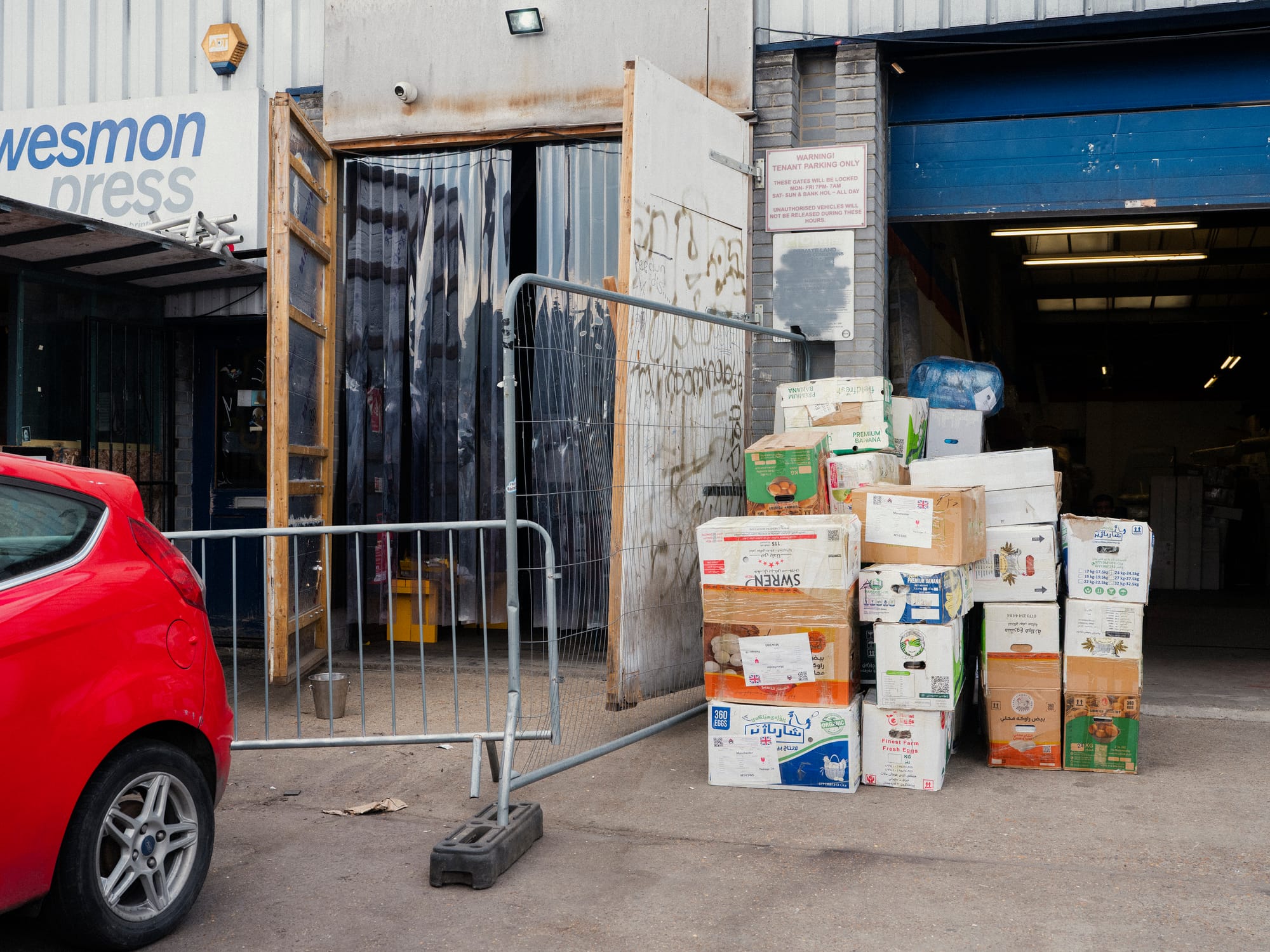
Mohammed’s landlord jokes they’ll have to put up a plaque in testament to the way he’s changed the area. He’s uneasy with such a legacy. “Everything happened naturally,” he protests. Really, he’s concerned with the consequences of popularity. “We’re the thorn in our own side,” he notes. “The more people wanting to be around the area could drive prices up”.
They already have. “Business rates have gone up,” he admits. “Rents have gone up. The perception of the success of the club has made people think we make loads of money.” The club is by no means on the breadline but Mohammed likes to run things on an economic tightrope.
There’s been setbacks. Covid almost crippled the club, striking only a few months after Mohammed had invested an extra £50,000 on a second room in a neighbouring unit. But, the real tragedy came in the venue’s first year, when Nacho was found dead in his mobile home, his staffy-hybrid, Stan, waiting patiently beside him. “Nacho’s death was a massive driving force,” Mohammed recalls, “he was such a good person and a friend.”
He gulps, then continues. “We walk into the darkness. We don’t know what’s next. We want to break things. Our core identity is about selling a good time and people have told me this place has given them the best night of their life.”
As I pack my equipment away, I watch Mohammed as he sits for a photoshoot and Sox rolls in the dust. He cuts a solitary figure on his empty dancefloor, the slushie machine slowly reaching full speed, ready for the noise.
Have you experienced Venue MOT? Remember the club culture of the 1990s and 2000s? Let us know in the comments how London's nightlife has changed in your time.

Comments
How to comment:
If you are already a member,
click here to sign in
and leave a comment.
If you aren't a member,
sign up here
to be able to leave a comment.
To add your photo, click here to create a profile on Gravatar.


